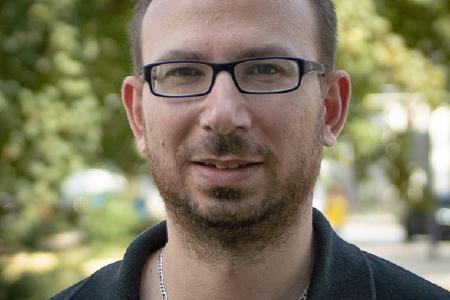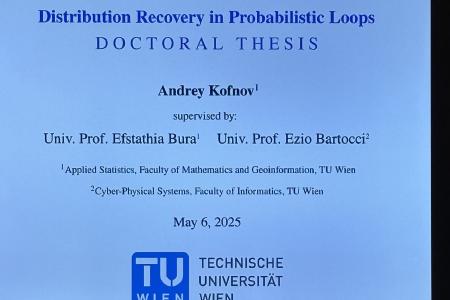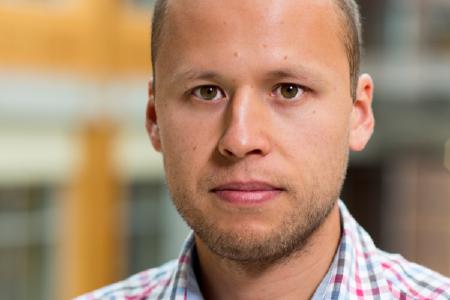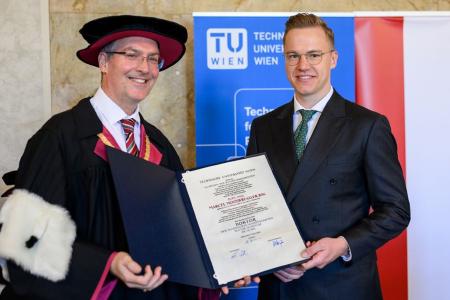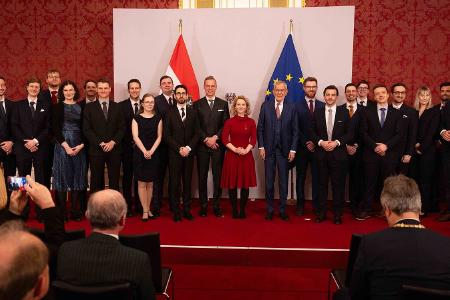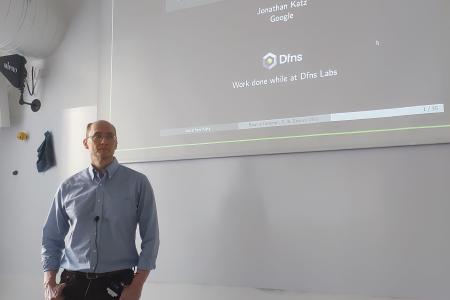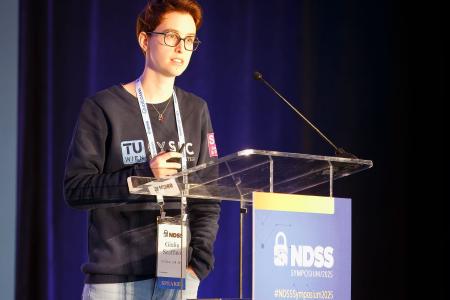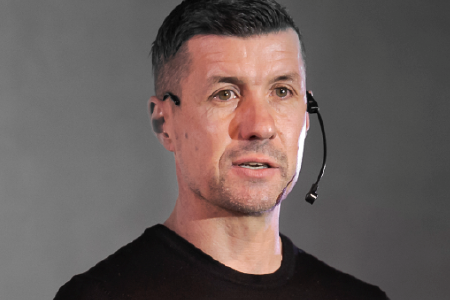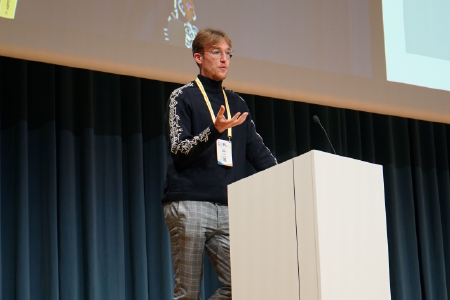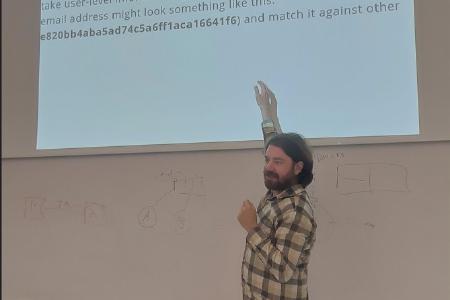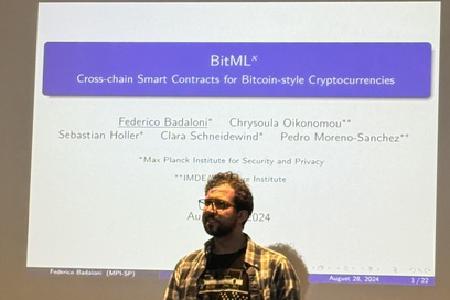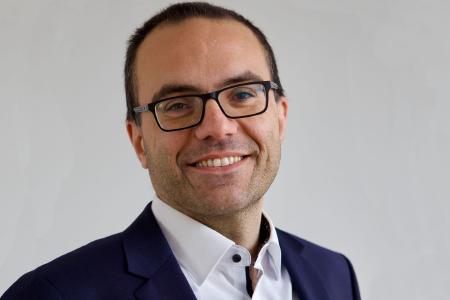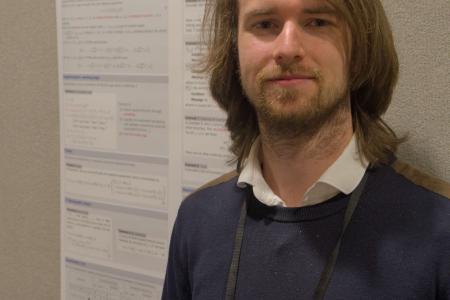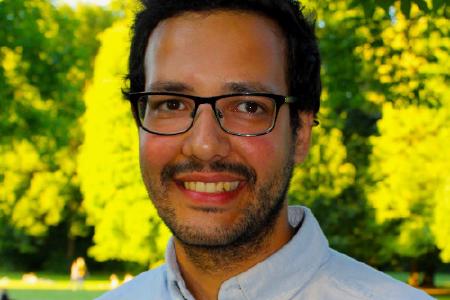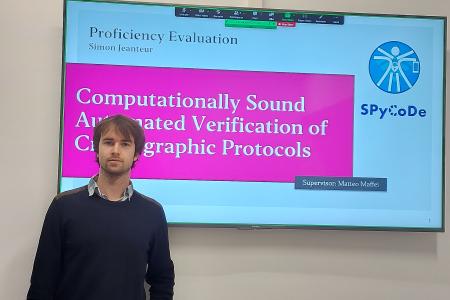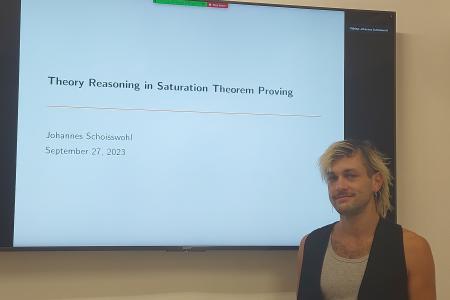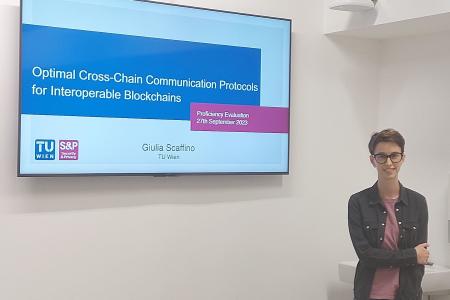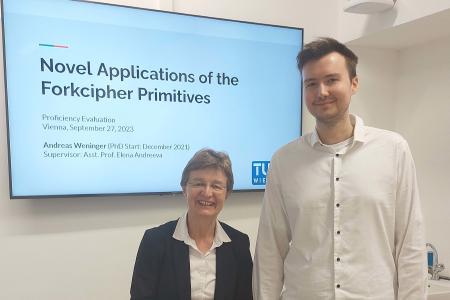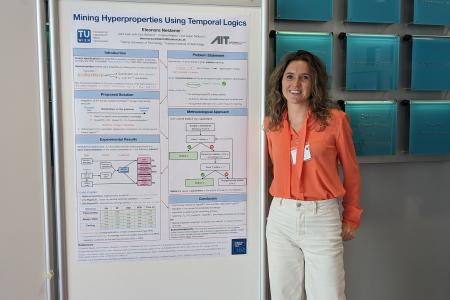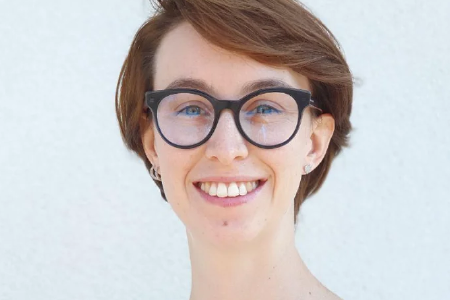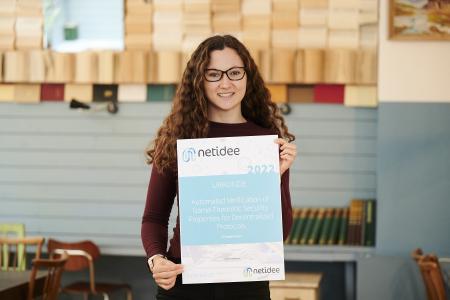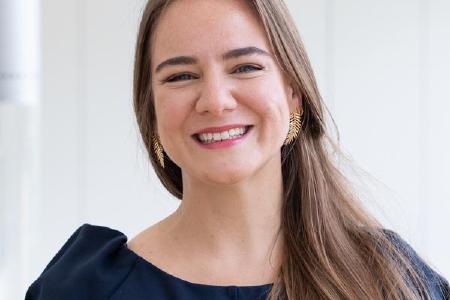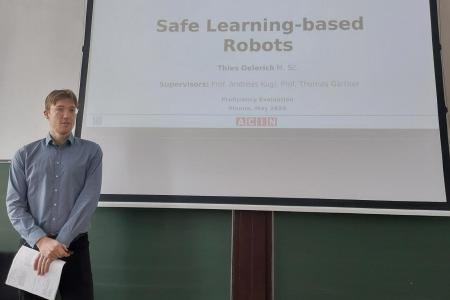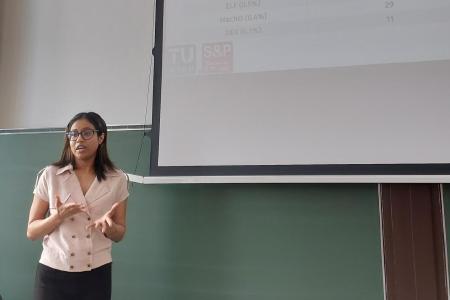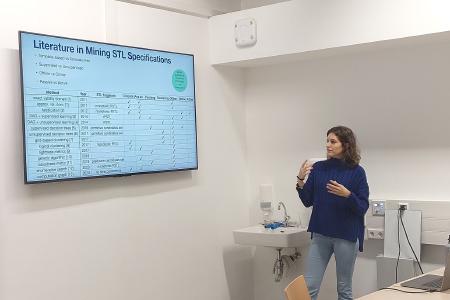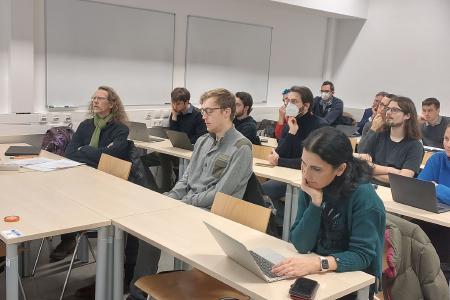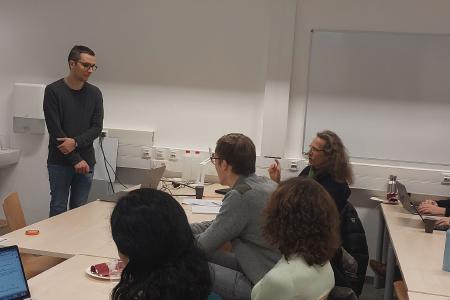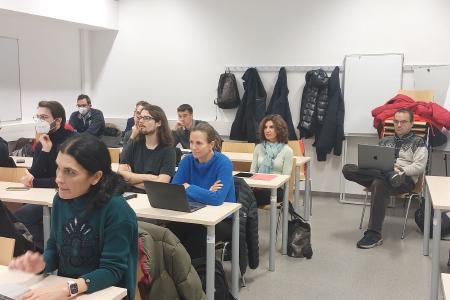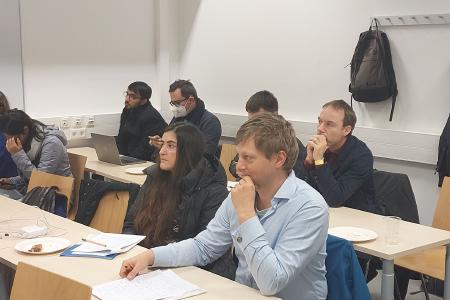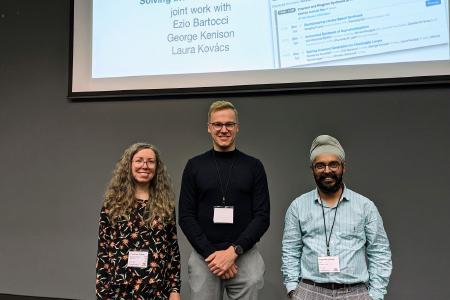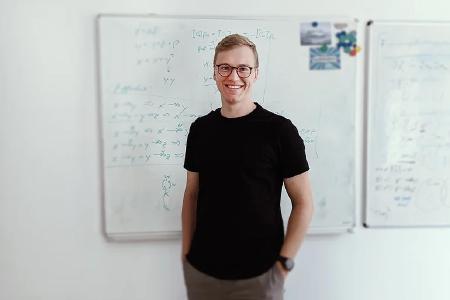News 
Upcoming
2025-06-02 Invited talk
On the Misuse Of Generative AI and What We Can Do About It
Lecturer: Erwin Quiring (Ruhr-University Bochum)
2025-06-23 Invited talk
The TPTP World - Infrastructure for Automated Reasoning
Lecturer: Geoff Sutcliffe (University of Miami)
May 2025
2025-05-30 Invited talk
Larger Decentralized Platforms Don`t Necessarily Offer Better Security
Lecturer: Ghassan Karame (Ruhr-University Bochum)
2025-05-13 Achievement
The paper titled “Mining Specifications for Predictive Safety Monitoring,” authored by SecInt student Eleonora Nesterini in collaboration with researchers from TU Wien, the University of California Berkeley, the Austrian Institute of Technology, and Chalmers University, has been accepted for presentation at ICCPS 2025 (International Conference on Cyber-Physical Systems).
2025-05-07 Invited talk
Sustainable Cybersecurity
Lecturer: Johannes Buchmannh (Center for Advanced Security Research Darmstadt)
2025-05-06 Defence
SecInt student Andrey Kofnov successfully defended his PhD thesis titled “Distribution Recovery in Probabilistic Loops.” His supervising professors were Univ. Prof. Ph.D. Efstathia Bura and Univ. Prof. Dott. Ric. Ezio Bartocci. The dissertation was reviewed by Prof. Ph.D. Mirco Tribastone (Systems Security Modelling and Analysis Research Unit, School for Advanced Studies Lucca, Italy) and Prof. Ph.D. Max Tschanowski (Department of Computer Science, Aalborg University, Denmark). Andrey presented methods for recovering distributions in probabilistic loops and estimating output distributions of neural networks with random inputs. His work introduces both exact and approximate techniques for computing moment-based invariants in stochastic systems with nonlinear updates, implemented in the Polar tool. A novel K-series method was developed to efficiently derive distributions from moments in probabilistic loops. Additionally, the thesis proposes a technique to compute precise upper and lower bounds for the cumulative distribution function of neural networks with noisy inputs, enabling sound analysis of network behavior under uncertainty. This research contributes to making complex algorithms and AI systems more transparent and reliable. Its results could help improve safety in fields such as autonomous driving, finance, and medical diagnostics, where decisions rely on uncertain or unpredictable data.
2025-05-05 Achievement
The paper titled “Exact Upper and Lower Bounds for the Output Distribution of Neural Networks with Random Inputs,” authored by Andrey Kofnov, Daniel Kapla, Ezio Bartocci, and Efstathia Bura, has been accepted for presentation at ICML 2025 (International Conference on Machine Learning), one of the world’s premier academic conferences focused on machine learning, artificial intelligence, and related fields.
April 2025
2025-04-03 Invited talk
Maximizing Branch Coverage with Constrained Horn Clauses
Lecturer: Grigory Fedyukovich (Florida State University)
March 2025
2025-03-12 Sub Auspiciis Promotion
Marcel Moosbrugger received his doctorate sub auspiciis, a prestigious acknowledgment of exceptional academic achievements, under the auspices of the Federal President of the Republic of Austria and the rectorate of TU Wien. Federal President Dr. Alexander Van der Bellen awarded Marcel Moosbrugger the Ring of Honor of the Republic of Austria. His doctoral thesis, titled “Automated Analysis of Probabilistic Loops,” was supervised by Laura Kovács and co-supervised by Ezio Bartocci.
2025-03-04 Invited talk
Round-Optimal Fully Secure Distributed Key Generation
Lecturer: Jonathan Katz (Google)
February 2025
2025-02-26 Presentation
At the Network and Distributed System Security Symposium (NDSS) 2025, held from 24 to 28 February 2025 in San Diego, California, Giulia Scaffino presented work titled “Alba: The Dawn of Scalable Bridges for Blockchains,” coauthored with Lukas Aumayr (TU Wien), Mahsa Bastankhah (Princeton University), Zeta Avarikioti (TU Wien), Matteo Maffei (TU Wien).
January 2025
December 2024
2024-12-20 Invited talk
Towards a Secure and Privacy-Respecting Web
Lecturer: Christoph Kerschbaumer (Mozilla)
November 2024
2024-11-26 Invited talk
Idealized Models in Cryptography: What, Why, and Where to Now?
Lecturer: Adam O’Neill (University of Massachusetts)
2024-11-25 Invited talk
Sustainable Blockchains
Lecturer: Krzysztof Pietrzak (Institute of Science and Technology Austria)
2024-11-15 Invited talk
Reproducible and Ethical Web Security Measurements
Lecturer: Ben Stock (CISPA Helmholtz Center for Information Security in Saarbrücken)
2024-11-15 Defence
SecInt student Lorenzo Veronese successfully defended his PhD thesis titled “Computer-Aided Formal Security Analysis of the Web Platform”. His supervising professor was Univ.-Prof. Matteo Maffei. The dissertation was reviewed by Prof. Musard Balliu (KTH, Sweden) and Dr.-Ing. Ben Stock (CISPA Helmholtz Center for Information Security, Germany). Lorenzo studied the security mechanisms of the modern Web and formalized them in the form of Web invariants. The research proposed two methodologies for validating Web invariants on a new model of Web specifications (WebSpec) and on browser implementations (Chromium, Firefox, Safari), which led to the discovery of new inconsistencies and the proposal of sound mitigations. The study then focused on application security by examining the lesser-known Web threat model of the related domain attacker, measuring its impact on the security of the most popular sites on the Web. Finally, the discussion turned to cookies and their long history of vulnerabilities, analyzing new violations of their integrity protections and new attacks enabled by related-domain attackers.
2024-11-08 Presentation
At the 8th Annual Conference on Robot Learning (CoRL), Thies Oelerich presented “Language-guided Manipulator Motion Planning with Bounded Task Space,” co-authored with Christian Hartl-Nesic and Andreas Kugi. Their research introduced a novel approach to robot control using large language models (LLMs) to interpret environmental cues for guiding robot manipulators. They addressed common safety and performance challenges associated with LLMs, such as jerky movements, by developing a modular framework for zero-shot motion planning that does not require specific training. This framework combines an LLM with a vision model to generate Python code that works with a new path planner, creating secure, linear paths with safety boundaries. An optimization-based planner then ensures these paths are followed safely and efficiently. The team demonstrated the effectiveness of this approach through simulations and real-world tasks, showcasing its potential in improving robotic manipulation.
October 2024
2024-10-28 Invited talk
Anonymity, Consent, and Other Noble Lies: An Empirical Study of the Data Economy
Lecturer: Joel Reardon (University of Calgary)
2024-10-16 Invited talk
Semantic Models for Trustworthy Systems: A Hybrid Intelligence Augmentation Program
Lecturer: Giancarlo Guizzardi (University of Twente)
2024-10-15 Lecture
Empowering Innovation: Unlocking the Potential of Privacy-Enhancing Technologies
Lecturer: Dominique Schröder (TU Wien)
September 2024
2024-09-30 Presentation
Aakanksha Saha presented her research, “ADAPT it! Automating APT Campaign and Group Attribution by Leveraging and Linking Heterogeneous Files,” co-authored with Jorge Blasco, Lorenzo Cavallaro, and Martina Lindorfer, at the 2024 International Symposium on Research in Attacks, Intrusions, and Defenses (RAID). The study tackles the escalating complexity of Advanced Persistent Threats (APTs), which increasingly challenge cybersecurity efforts across industries, governments, and democratic institutions.
2024-09-26 Presentation
Giulia Scaffino made significant contributions as a member of the Program Committee for the Workshop on Scalability & Interoperability of Blockchains (SIB), held on September 26, 2024, at the Austrian National Bank (OeNB) in Vienna, Austria. She chaired the session on the Consensus Layer and also presented “Blink: An Optimal Proof of Proof-of-Work” during the Interoperability session. This study, a collaborative effort with Lukas Aumayr, Zeta Avarikioti, Dionysis Zindros, and Matteo Maffei, introduced Blink, a proof-of-work light client. Blink is the first of its kind to be provably secure with O(1) complexity and operates without a trusted setup. Its applications range from payment verification to supporting blockchain bridges. This innovative approach marks a significant departure from traditional models like the Simplified Payment Verification (SPV) described by Nakamoto in the Bitcoin whitepaper, which required resources that increased linearly over time. The team has successfully demonstrated that Blink is secure within the Bitcoin Backbone model and has shown that it can secure a commitment to the current state of Bitcoin with a mere download of only 1.6KB—significantly less than the 67.3MB and 197KB required for SPV and zk-based clients, respectively.
2024-09-03 Proficiency evaluation
- Stefan Kitzler: Computational Methods for Analyzing Decentralized Finance Ecosystems
August 2024
2024-08-28 Invited talk
BitMLx: Cross-chain Smart Contracts for Bitcoin-style Cryptocurrencies
Lecturer: Federico Badaloni (Max Planck Institute for Security and Privacy)
2024-08-14 Invited talk
Security in a World of Software Supply-Chain Vulnerabilities
Lecturer: Nikos Vasilakis (Brown University)
July 2024
2024-07-27 Presentation
Anagha Athavale presented the paper titled “Verifying Global Two-Safety Properties in Neural Networks with Confidence,” co-authored with Ezio Bartocci, Maria Christakis, Matteo Maffei, Dejan Nickovic, and Georg Weissenbacher, at the 36th International Conference on Computer Aided Verification. This work introduced the first automated method for verifying confidence-based 2-safety properties, such as global robustness and global fairness, in deep neural networks (DNNs). Despite the widespread application of DNNs, formally verifying these critical safety properties has remained a major challenge. Anagha’s approach combines self-composition with existing reachability analysis techniques and introduces a novel abstraction of the softmax function, making it suitable for automated verification. She also characterized and proved the soundness of this static analysis technique. This work addresses critical gaps in verifying the safety properties of DNNs, representing a significant advancement in ensuring their reliability.
2024-07-08 Presentation
At the 3rd Workshop on Rethinking Malware Analysis (WoRMA), co-located with IEEE EuroS&P 2024, Aakanksha Saha presented the paper titled ‘Exploring the Malicious Document Threat Landscape: Towards a Systematic Approach to Detection and Analysis,’ co-authored with Jorge Blasco and Martina Lindorfer. They performed a measurement study that leveraged existing tools and techniques to detect, extract, and analyze malicious Office documents. They collected a substantial dataset of 9,086 malicious samples and revealed a critical gap in the understanding of how attackers utilized these documents. Their in-depth analysis highlighted emerging tactics used in both targeted and large-scale cyberattacks while identifying weaknesses in common document analysis methods. Through a combination of analysis techniques, they gained crucial insights valuable for forensic analysts to assess suspicious files, pinpoint infection origins, and ultimately contribute to the development of more robust detection models. The team made their dataset and source code available to the academic community to foster further research in this area. Aakanksha Saha also participated in a panel on “Rethinking Malware Analysis”.
2024-07-05 Presentation
Márton Hajdu is a recipient of the prestigious Woody Bledsoe Award at the 12th International Joint Conference on Automated Reasoning (IJCAR 2024). He significantly contributed to three papers presented at the conference:
- Synthesis of Recursive Programs in Saturation - co-authored by P. Hozzová, D. Amrollahi, M. Hajdu, L. Kovács, A. Voronkov, E. M. Wagner, this paper introduces a groundbreaking approach to program synthesis using saturation-based theorem proving. It details the implementation of “magic axioms” that facilitate the synthesis of recursive functions, applied within the Vampire theorem prover for manipulating algebraic data types.
- Reducibility Constraints in Superposition - authored by M. Hajdu, L. Kovács, M. Rawson, A. Voronkov, this paper advances superposition inference systems. The team developed a novel mechanism that significantly reduces the number of necessary superposition inferences by introducing reducibility constraints that block specific inferences, thereby greatly reducing the search space. This method has been effectively demonstrated in the Vampire theorem prover, marking a significant improvement in automated reasoning system efficiency.
- Induction in Saturation - written by L. Kovács, P. Hozzová, M. Hajdu, A.Voronkov, this paper reviews their latest progress in enhancing saturation-based theorem proving to automate inductive reasoning. They have successfully formalized induction applications within first-order theorem proving, creating an effective tool for addressing complex challenges in formal verification and mathematical theories..'
2024-07-05 Invited talk
Access Control in Mobile Software Stacks: Can we do fundamentally better?
Lecturer: Sven Bugiel (CISPA Helmholtz Center for Information Security)
June 2024
2024-06-24 Invited talk
On Challenges in Defending Against Code Stylometry.
Lecturer: Konrad Rieck (TU Berlin, Guest Professor at TU Wien)
2024-06-24 Defence
The first defense by a SecInt student was successfully conducted as Marcel Moosbrugger delivered an outstanding defense of his dissertation titled “Automated Analysis of Probabilistic Loops.” His supervising professor was Univ.-Prof. Dr. Laura Kovács. The dissertation was reviewed by Prof. Christel Baier (TU Dresden) and Prof. Joёl Ouaknine (Max Planck Institute for Software Systems). Marcel contributes to the theoretical foundations and computational techniques for analyzing the safety and liveness of probabilistic loops. In particular, he introduced a novel technique for automatic sensitivity analysis of probabilistic systems with unknown model parameters. More details can be found on the Student blog.
2024-06-11 Interview
Sophie Rain, in her interview, talks about her involvement in the “Workshop für Volksschulen: Algorithmen” for primary schools. She highlights how this initiative contributes to empowering and promoting girls and women in informatics. The workshop is part of the TU Wien Informatics eduLAB and is sponsored by Let`s Empower Austria.
2024-06-10 Achievement
Prof. Matteo Maffei has received an ERC Advanced Grant for his research into the security aspects of blockchain technologies. More details at CySec. Security and Privacy Research Unit is looking for an intern, a Ph.D. student, or a postdoc.
2024-06-05 Presentation
Aakanksha Saha delivered a talk titled “Unmasking APTs: Addressing Attribution Challenges in Evolving Attack Landscapes” at the conference “IT-S NOW - Where Research Meets Society” (IT-S NOW). She focused on the challenges of attributing Advanced Persistent Threats (APTs), which pose significant risks to industries, governments, and democratic institutions. She highlighted the difficulties in attribution—specifically identifying APT attackers—using case studies to demonstrate how APT groups adapt, share tools, and exploit various platforms to achieve their goals. This adaptability complicates attribution, often leading to delays or inaccuracies. Saha emphasized the importance of building comprehensive datasets, standardizing APT group names, and recognizing common evasion techniques. She also explored the potential for automating attribution to manage the growing complexity of APT campaigns effectively.
May 2024
2024-05-30 Presentation
Sophie Rain’s talk, Scaling CheckMate for Game-Theoretic Security, received the Best Presentation Award at the 25th Conference on Logic for Programming, Artificial Intelligence, and Reasoning (LPAR-25). The research, conducted in collaboration with Lea Salome Brugger, Anja Petković Komel, Laura Kovács, and Michael Rawson, introduces CheckMate, a tool for automating the verification of game-theoretic security properties, with a particular focus on blockchain protocols. By utilizing automated reasoning techniques, CheckMate evaluates whether a game-theoretic protocol model is secure, ensuring Byzantine fault tolerance and incentive compatibility. The presentation detailed CheckMate’s input format, components, modes, and outputs. The tool was benchmarked using 15 different models, including decentralized protocols, board games, and game-theoretic examples. More details can be found in the Paper.
Marton Hajdu presented rewriting techniques based on reduction orderings that generate “just enough” consequences to maintain first-order completeness. This research, co-authored with Laura Kovács and Michael Rawson, focuses on enhancing superposition-based first-order theorem proving by using reduction orderings to strike a balance, ensuring first-order completeness. However, gaps were identified when applying this approach to inductive reasoning. As a result, the authors extended the superposition calculus with new rewriting-based techniques to generate the necessary consequences for automating induction in saturation, which is crucial for improving reasoning processes.
Marton also contributed to the research Saturating Sorting without Sorts, which addresses the functional correctness of programs using recursive data structures, with a specific focus on sorting algorithms. This work introduces a novel reasoning framework using many-sorted first-order logic to formalize the semantics of recursive programs, incorporating sortedness and permutation properties directly into the first-order formalization. Pamina Georgiou, Marton Hajdu, and Laura Kovács demonstrate the applicability of their framework on recursive sorting algorithms, including Mergesort and Quicksort.
Johannes Schoisswohl introduced the Virtual Integer-Real Arithmetic Substitution (VIRAS), a quantifier elimination procedure co-designed with L. Kovács and K. Korovin for addressing quantified linear mixed integer-real arithmetic problems. VIRAS integrates the virtual substitution framework with conflict-driven proof search and linear integer arithmetic reasoning based on Cooper’s method. They demonstrate that VIRAS offers an exponential speedup over state-of-the-art methods in quantified arithmetic reasoning, effectively solving problems that SMT-based techniques fail to resolve.
2024-05-20 Presentation
Simon Jeanteur presented “CryptoVampire: Automated Reasoning for the Complete Symbolic Attacker Cryptographic Model,” based on the corresponding published paper. This joint work with other TU Wien researchers, Laura Kovács, Matteo Maffei, and Michael Rawson, introduces the new home-brewed tool, CryptoVampire. This tool breaks new ground in protocol verification by enabling the first fully automated proofs using the innovative Computationally Complete Symbolic Attacker (CCSA) model. This advancement allows for the automatic verification of protocols in a stronger model than was previously possible.
Lorenzo Veronese contributed to the paper “Tabbed Out: Subverting the Android Custom Tab Security Model,” co-authored with P. Beer, M. Squarcina, and M. Lindorfer. This pioneering study represents the first systematic security evaluation of Android’s Custom Tab component — a widely used feature for displaying web content within apps. Their research uncovered significant flaws in the security design of Custom Tabs, posing severe threats to user security and privacy. These flaws could enable malicious applications to extract sensitive browsing data, compromise web session integrity, and facilitate phishing attacks. The impact of their findings extends beyond theoretical concerns: following responsible disclosure, Google implemented several mitigations to address the discovered attack vectors. In recognition of their contributions, the researchers received a $10,000 bug bounty. Additionally, their ongoing collaboration with Google has led to significant updates to the Chrome Custom Tabs Security FAQ, enhancing clarifications of its security model.
April 2024
2024-04-25 Proficiency evaluation
- Thomas Hader: Finite Field Arithmetic in SMT
- Asad Aftab: Security related to ML
- Clemens Eisenhofer: Custom Theory Reasoning in SMT
2024-04-17 Invited talk
The Business of Proof.
Location: TU Wien, Campus Freihaus, Informatikhörsaal (1040 Vienna, Treitlstraße 3)
Time: 11:15 – 13:00
Lecturer: Byron Cook (UCL, TU Darmstadt, Amazon)
March 2024
December 2023
2023-12-01 Invited talk
Elastic SNARKs for Diverse Environments.
Lecturer: Michele Orrù (Sorbonne Université)
November 2023
2023-11-27 Presentation
Sophie Rain presented the paper titled “CheckMate: Automated Game-Theoretic Security Reasoning,” co-authored by Lea Salome Brugger, Laura Kovács, Anja Petković Komel, Sophie Rain, and Michael Rawson, in the “Formal Methods and Programming Languages” track at the ACM Conference on Computer and Communications Security (CCS), held in Copenhagen, Denmark.
2023-11-24 Invited talk
Do You Trust Your Wallet? Analyzing the Privacy Risks of Web3 Wallets.
Lecturer: Christof Ferreira Torres (ETH Zurich)
October 2023
2023-10-25 Talk
Together with her colleagues, Sophie Rain introduced a framework for adapting computer science content and delivery methods to a younger audience at the 16th International Conference on Informatics in Schools (ISSEP 2023). The reshaping of unplugged computer science activities is grounded in a meticulous analysis of experiences from sessions involving 192 primary school children, aiming to align with their developmental needs and capabilities. The TUW team regards the creation of an educational playground for primary and secondary school classes as a valuable contribution to the broader societal mission of fostering interest in STEM among more children, ensuring that our technological future is as diverse as possible. For more details, explore the release of doIT 2/2023 in “Der Standard.”
2023-10-17 Proficiency evaluation
- Simon Jeanteur: Computationally Sound Automated Verification of Cryptographic Protocols
- Anagha Athavale: Verification Testing for Machine Learning
- Lisa-Marie Geiginger: Robust Machine Learning Methods for the Detection of Anomalies in Network Traffic
2023-10-12 Invited talk
BBCA-LEDGER: High Throughput Consensus meets Low Latency
Lecturer: Chrysoula Stathakopoulou (Chainlink Labs)
2023-10-05 Presentation
Eleonora Nesterini presented “Mining Specification Parameters for Multi-class Classification” at the 23rd International Conference on Runtime Verification (RV 2023) in Thessaloniki, Greece. Her collaborative work with Edgar A. Aguilar, Ezio Bartocci, Cristinel Mateis, and Dejan Ničković introduces a method for mining parameters of temporal specifications for signal classification.
September 2023
2023-09-27 Proficiency evaluation
- Johannes Schoisswohl: Theory Reasoning in Saturation Theorem Proving
- Giulia Scaffino: Cross-Blockchain Lightweight Protocols
- Andreas Weninger: Novel Applications of the Symmetric-key Forkcipher Primitives
2023-09-20 Presentation
SecInt PhD student Eleonora Nesterini presented a joint work with Ezio Bartocci, Cristinel Mateis, and Dejan Ničković titled “Mining Hyperproperties using Temporal Logics” at ESWEEK at the EMSOFT conference. The talk introduced the first learning technique for generic temporal hyperproperties and the first mining method that allows the user to embed a flexible amount of prior knowledge into the learning process.
2023-09-15 Invited talk
Data, AI and Cybersecurity - a possible cocktail?
Lecturer: Marco Mellia (Politecnico di Torino)
July 2023
2023-07-26 Achievement
Eleonora Nesterini is awarded with the Marshal Plan Scholarship by the Austrian Marshall Plan Foundation, an academic exchange program between Austria and the U.S. that will finance her research visit at UC Berkeley.
2023-07-05 Achievement
Our students have once again made it to the prestigious TUW Under 30 list, and we couldn’t be prouder! Sophie Rain has been recognized for her research in game theory for cybersecurity and her efforts in promoting computer science among elementary school students. Another remarkable accomplishment comes from Giulia Scaffino, who has made a breakthrough in сross-chain communication with Glimpse. We are truly inspired by their achievements!
© Internet StiftungJune 2023
2023-06-28 Distinguished Lecture Series with ViSP
Cryptography in the Wild
Lecturer: Kenneth Paterson (ETH Zurich)
2023-06-26 Achievement
The research paper titled “Glimpse: On-Demand PoW Light Client with Constant-Size Storage for DeFi” by Giulia Scaffino, Lukas Aumayr, Zeta Avarikioti, and Matteo Maffei has been accepted at the prestigious “USENIX Security Symposium” (August 2023). The paper introduces the “Glimpse” protocol, which enables secure cross-chain token transfers in a fully decentralized manner, eliminating the need for large commercial crypto-depots. One notable feature of the Glimpse protocol is its compatibility with blockchains that have limited scripting languages. The authors provide a specific implementation of Glimpse for the Liquid Network, which is a pegged sidechain of Bitcoin. The protocol’s security is proven within the Universal Composability (UC) framework, indicating a strong level of confidence in its security guarantees. The researchers also conducted an economic analysis of the Glimpse protocol. The cost evaluation reveals that verifying a simple transaction on Bitcoin-like chains using Glimpse incurs a maximum of 700 bytes of on-chain overhead, resulting in a one-time fee of $3. This fee is only twice as much as a standard Bitcoin transaction, demonstrating the efficiency of Glimpse in terms of transaction costs. Overall, the advancements presented in the paper open up exciting new possibilities for the world of cryptocurrencies.
2023-06-21 Distinguished Lecture Series with ViSP
Consensus in blockchains: Overview and recent results
Lecturer: Christian Cachin (University of Bern)
2023-06-20 Talk
During the Tuesday Lounge event titled “TU und Schule: Faszination Technik?” Sophie Rain introduced the “Abenteuer Informatik für Volksschulen” project (Adventure Computer Science for Elementary Schools), which started in May 2023. This initiative aims to cultivate interest in STEM subjects among children by showcasing the captivating nature of computer science. The project plans to organize over 20 workshops annually, specifically designed for third-grade students in Vienna’s elementary schools, providing an opportunity for 18,000 children to participate and engage in STEM activities. Laura Kovacs, the project’s leader, emphasizes the team’s primary goal of easing the transition for children from regular school activities to scientific research. While the role of universities in STEM education development is still evolving, we take pride in the contributions our students make towards this emerging trend.
2023-06-14 Distinguished Lecture Series with ViSP
Towards Understandable Privacy and Security Guarantees - The Human Factors Perspective
Lecturer: Katharina Krombholz (CISPA Helmholtz Center for Information Security)
May 2023
2023-05-31 Proficiency evaluation
- Thies Oelerich: Safe Learning-based Robots
- Aakanksha Saha: Attribution of Advanced Persistent Threats
- Patrick Indri: Differential privacy for trustworthy machine learning
2023-05-31 Distinguished Lecture Series with ViSP
Scaling Formal Verification to Realistic Code with Applications to DeFi Verification
Lecturer: Mooly Sagiv (Tel Aviv University)
2023-05-24 Presentation
SecInt PhD student Lorenzo Veronese delivered a talk titled “WebSpec: Towards Machine-Checked Analysis of Browser Security Mechanisms” at the 44th IEEE Symposium on Security and Privacy (IEEE S&P 2023). The talk presented a joint work with B. Farinier, P. Bernardo, M. Tempesta, M. Squarcina, and M. Maffei. It introduced WebSpec as the first formal security framework for analyzing browser security mechanisms. WebSpec enables both the automatic discovery of logical flaws and the development of machine-checked security proofs. When a violation is detected, the toolchain automatically generates executable tests corresponding to the identified attack trace, which are validated across major browsers. The effectiveness of WebSpec was demonstrated through practical examples, highlighting its versatility and broad range of applications.
2023-05-04 Presentation
Marcel Moosbrugger delivered a talk on the topic of “Probabilistic Loop Analysis with Recurrences” at Bellairs 2023
2023-05-03 Distinguished Lecture Series with ViSP
When Papers Choose their Reviewers: Adversarial Machine Learning in Conference Management Systems
Lecturer: Konrad Rieck (TU Berlin)
April 2023
2023-04-17 Distinguished Lecture Series with ViSP
Logic meets Learning - Formal Synthesis with Neural Templates
Lecturer: Alessandro Abate (University of Oxford)
March 2023
2023-03-31 Award
The paper “Distributed Key Generation with Smart Contracts using zk-SNARKs” by Michael Sober, Max Kobelt, Giulia Scaffino, and Dominik Kaaser received the SAC 2023 Award at The 38th ACM/SIGAPP Symposium On Applied Computing. It was acknowledged as the Best Paper in the Distributed Systems category.
2023-03-30 Award
SecInt PhD student Stefan Kitzler has been awarded by 10th SUERF/UniCredit Foundation Research Prize for the paper Disentangling Decentralized Finance (DeFi) Compositions
2023-03-23 Presentation
SecInt PhD student Aakanksha Saha introduced a novel techniques for the authorship attribution of targeted malware attacks at the Women in Science Seminar at King’s College London, UK. ADAPT, a static machine learning-based approach to APT (Advanced Persistent Threat) attribution, automates and standardizes the attribution process across heterogeneous file types. Aakanksha will present the findings and insights obtained from applying ADAPT to a newly crafted APT dataset consisting of 5,989 real-world APT samples from approximately 162 threat groups, spanning from May 2006 to October 2021
2023-03-16 Award
SecInt PhD student Sophie Rain has been awarded by the Christiana HÖRBIGER Award
December 2022
2022-12-20 Achievement
5 fundamental research projects submitted by SecInt faculty members are the winners of the ICT22 WWTF competition in the field of information and communication technologies. The сommission of international experts selected 9 projects from 66 short and 26 full applications. The total amount of funding is € 6,606,000
2022-12-09 Presentation
Marcel Moosbrugger presented a joint work with Ezio Bartocci, Laura Kovács, and Miroslav Stankovič titled “This Is the Moment for Probabilistic Loops” at OOPSLA 2022. The talk introduced a new automated technique for analyzing probabilistic loops with potentially uncountable state spaces to calculate higher moments for program variables. The work has practical applications in recovering probability distributions of random variables and computing tail probabilities. Empirical evaluation highlighted the technique‘s effectiveness and practicality through various challenging examples. →Video
2022-12-05 Proficiency evaluation
- Eleonora Nesterini: Specification mining for Cyber-Physical Systems
- Marton Hajdu: Scaling Induction in Saturation
- Andrey Kofnov: Multivariate continuous signal modelling with applications in Probabilistic Programming
2022-12-05 Award
SecInt PhD student Marcel Moosbrugger has been awarded by “Radhia Cousot Young Researchers Best Paper Award 2022” for the paper “Solving Invariant Generation for Unsolvable Loops” (joint work with Daneshvar Amrollahi, Ezio Bartocci, George Kenison, Laura Kovács, Miroslav Stankovič) →Video
November 2022
2022-11-26 Talk
At TEDxSalzburg 2022, Marcel Moosbrugger delivered a talk titled “Künstliche Intelligenz: Ein Duell zwischen Mensch und Maschine?” on the role of artificial intelligence in modern society and the challenges of human interaction with these systems. The talk offers a valuable perspective on the future of technology, particularly in the fields of data analysis and AI development. With in-depth knowledge and exciting insights into these areas, Marcel provides a captivating look into the cutting-edge world of technology. →Video
2022-11-25 Award
SecInt member Sophie Rain is awarded by Netidee 2022 Stipend (Call 17). Her research “Automated Verification of Game-Theoretic Security Properties for Decentralized Protocols” became one of 13 interesting and innovative projects selected by the jury to promote and further develop the Internet in Austria through opensource
September 2022
2022-09-19 Distinguished Lecture Series with ViSP
Calculating Sensitivity by Parametricity
Lecturer: Alejandro Russo (Chalmers University of Technology, Göteborg University)
2022-09-16 Award
SecInt members Andrey Kofnov, Marcel Moosbrugger, Ezio Bartocci and Efstathia Bura were awarded with the Best Paper Award at the 19th International Conference on Quantitative Evaluation of Systems (QEST 2022) held in Warsaw (Poland) for the paper “Moment-based Invariants for Probabilistic Loops with Non-polynomial Assignments”
July 2022
2022-07-14 Presentation
Patrick Indri was selected for a long talk and poster presentation at EvoStar 2022 and for poster presentation at Eastern European Machine Learning Summer School (EEML 2022)
2022-07-08 Interview
Marcel Moosbrugger, in his interview, shares insights on building a career in informatics and emphasizes the importance of having the freedom to conduct research.
June 2022
2022-06-15 Distinguished Lecture Series with ViSP
How Dark is the Forest? On Blockchain Extractable Value in Decentralized Finance
Lecturer: Arthur Gervais (Imperial College London)
→Video
2022-06-02 Award
Marcel Moosbrugger became an Awardee of the Christina Hörbiger Prize of TU Wien and was among the 30 “TUW Under 30” who have proven their potential in a variety of areas and distinguished themselves by special achievements
2022-06-01 Presentation
Sophie Rain presented her research on gender balance in Informatics at 1st International EUGAIN Summer Training School (EUGAIN-STS 2022)
May 2022
2022-05-13 Proficiency evaluation
- Lorenzo Veronese: Computer-Aided Formal Security Analysis of the Web Platform
- Marcel Moosbrugger: Automated Analysis of Probabilistic Programs
- Sophie Rain: Automated Verification of Game-Theoretic Security Properties for Decentralized Protocols
April 2022
2022-04-13 Distinguished Lecture Series with ViSP
Learning from the People: Responsibly Encouraging Adoption of Contact Tracing Apps
Lecturer: Elissa Redmiles (Max Planck Institute for Software Systems)
→Video →Slides
March 2022
2022-03-09 Distinguished Lecture Series with ViSP
How to Commit to a Private Function
Lecturer: Dan Boneh (Stanford University)
→Video →Slides
February 2022
2022-02-09 Distinguished Lecture Series with ViSP
Attacking the Brain: Security and Privacy Case Studies in Online Advertising, Misinformation, and Augmented Reality
Lecturer: Franziska Roesner (University of Washington)
→Video
January 2022
2022-01-12 Distinguished Lecture Series with ViSP
Quantifying Privacy Risks of Machine Learning Models
Lecturer: Yang Zhang (CISPA Helmholtz Center for Information Security)
→Video
December 2021
2021-12-15 Distinguished Lecture Series with ViSP
A Stab in the Dark: Blind Attacks on the Linux Kernel
Lecturer: Herbert Bos (Vrije Universiteit, Amsterdam)
→Video
2021-12-01 Presentation
Eleonora Nesterini presented the paper “Mining Shape Expressions with ShapeIt” at International Conference on Software Engineering and Formal Methods 2021 (SEFM)
November 2021
2021-11-24 Distinguished Lecture Series with ViSP
Cascade: Asynchronous Proof-of-Stake
Lecturer: Roger Wattenhofer (ETH Zurich)
→Video
October 2021
2021-10-13 Distinguished Lecture Series with ViSP
Digital Personhood: Towards Technology that Securely Serves People
Lecturer: Bryan Ford (Swiss Federal Institute of Technology, Lausanne)
→Video →Slides
2021-10-02 Presentation
Sophie Rain presented the first results of game-theoretical security properties and models at Dagstuhl seminar “Rigorous Methods for Smart Contracts” (Dagstuhl seminar)
2021-10-01 Presentation
Marton Hajdu presented “Induction with Recursive Definitions in Superposition” at Formal Methods in Computer-Aided Design 2021 (FMCAD)
September 2021
2021-09-01 Presentation
Aakanksha Saha presented a lightning talk on her current research at Women in Security and Cryptography Workshop (WISC)
July 2021
2021-07-01 Presentation
Sophie Rain presented paper “Summing Up Smart Transitions” at the 33rd International Conference on Computer-Aided Verification (CAV 2021)
May 2021
2021-05-12 Diploma Thesis Award
Marcel Moosbrugger won the Diploma Thesis Award of the City of Vienna
2021-05-12 Distinguished Lecture Series with ViSP
Fuzz Testing and Beyond
Lecturer: Thorsten Holz (Ruhr-University Bochum, Germany)
→Video
April 2021
2021-04-14 Distinguished Lecture Series with ViSP
Privacy and Verifiability in Certificate Transparency
Lecturer: Sarah Meiklejohn (University College London)
March 2021
2021-03-10 Distinguished Lecture Series with ViSP
Proximity tracing with Coronalert: lessons learned
Lecturer: Bart Preneel (KU Leuven)
→Video
February 2021
2021-02-10 Distinguished Lecture Series with ViSP
SafetyPin: Encrypted Backups with Human-Memorable Secrets
Lecturer: Henry Corrigan-Gibbs (MIT)
→Video
January 2021
2021-01-13 Distinguished Lecture Series with ViSP
SandTrap: Securing JavaScript-driven Trigger-Action Platforms
Lecturer: Andrei Sabelfeld (Chalmers University of Technology, Gothenburg)
→Slides






